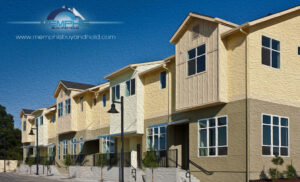
In recent years, a notable shift has emerged in the U.S. housing market, with more Americans choosing to rent rather than own their homes. Unlike traditional renters who rent out of necessity, a new wave known as “lifestyle renters” is opting for leases by choice. This trend reflects broader cultural, economic, and personal priorities and is reshaping the real estate landscape in ways that developers, landlords, and financial analysts are only beginning to fully understand.
What Defines a Lifestyle Renter?
A lifestyle renter is someone who could afford to buy a home but consciously chooses to rent. For these individuals, renting aligns with their desire for flexibility, convenience, and the ability to prioritize other life goals over homeownership. This is different from traditional renting, often motivated by necessity, and signals a broader lifestyle choice reflecting freedom and mobility.
Key Drivers Behind the Trend
Several factors contribute to the rise of lifestyle renters in the U.S., from changing economic landscapes to shifting values among younger and older generations alike.
- Flexibility and Mobility
Many Americans today place a high value on flexibility, which renting often better supports than homeownership. Renters can more easily relocate for job opportunities, family needs, or simply a change of scenery without the financial and logistical burdens of selling a home. This appeal has only grown with the rise of remote work and gig economy roles that encourage or even necessitate mobility. - Urban Amenities and Convenience
Lifestyle renters often prioritize locations close to urban centers, where they have access to dining, entertainment, and shopping options that complement their lifestyles. Renting allows them to access premium neighborhoods and buildings that would otherwise be unaffordable or impractical for ownership. Many rental properties also come with additional amenities like pools, gyms, and concierge services, adding to the appeal. - Financial Strategy and Market Uncertainty
For some, renting is a strategic choice to keep financial resources liquid. Instead of tying up savings in a down payment and mortgage, lifestyle renters may invest elsewhere, such as in stocks, startups, or travel experiences. Additionally, with recent volatility in the real estate market, some choose to wait until prices stabilize rather than committing to a mortgage amid high interest rates or inflated prices. - Shifting Priorities Among Generations
Millennials and Gen Z are particularly drawn to the rental lifestyle. Many grew up during or in the wake of the 2008 financial crisis, witnessing firsthand the risks of homeownership during economic downturns. This experience has led to a more cautious approach to property investment, with many choosing to rent while focusing on careers, travel, and personal development instead. - Quality of Rental Options
As demand for rental options has grown, developers have responded with high-quality, luxury rentals that appeal to lifestyle renters. These properties often feature modern designs, eco-friendly features, and advanced technology that enhance the living experience. Some developments even tailor community events and social spaces to foster a sense of belonging among renters, which adds an attractive social dynamic.
The Impact on the U.S. Real Estate Market
This shift is having a profound impact on the housing market. Property developers and investors are increasingly focusing on rental units, particularly in high-demand urban areas and desirable suburban locations. The trend is also driving demand for amenities and services that enhance the rental experience, from smart home technology to pet-friendly policies.
Additionally, the rise in lifestyle renting has implications for housing policy and urban planning. City planners and policymakers are tasked with balancing the growing demand for rentals with the need to ensure affordable housing options for lower-income residents. This may mean rethinking zoning laws and incentives to promote sustainable urban growth that accommodates a range of housing needs.
The Future of Lifestyle Renting
As lifestyle renting becomes more prevalent, it is likely to influence future trends in the housing market and beyond. We may see an increased focus on building communities that support flexibility and convenience, with rentals designed to serve a diverse population of renters by choice. Technology, too, will play a central role in shaping the future of rental living, from smart home solutions to digital platforms that simplify the leasing process.
Furthermore, the cultural perception of renting is evolving. Once seen as a stepping stone to homeownership, renting is increasingly recognized as a viable, long-term housing option that can align with a dynamic and experience-focused lifestyle.
Conclusion
The rise of lifestyle renters in the U.S. reflects a broader cultural shift toward flexibility, experience, and choice over traditional notions of homeownership. For those embracing this approach, renting provides the freedom to live in desirable areas, adapt to changing circumstances, and prioritize personal goals. As the housing market continues to evolve, the concept of the “American Dream” itself may broaden, with lifestyle renters paving the way for a new understanding of what it means to live well in modern America.
Memphis Buy And Hold is specializing in locating, purchasing, renovating and managing single-family and multi-unit properties and possesses from 2007 up to the present of experience in real estate investing and property management in the Memphis and Nashville markets.
- Memphis Property Management
- Memphis Turnkey Investment Properties
- DCC Rentals LLC
Discover more from Memphis Buy And Hold
Subscribe to get the latest posts sent to your email.

